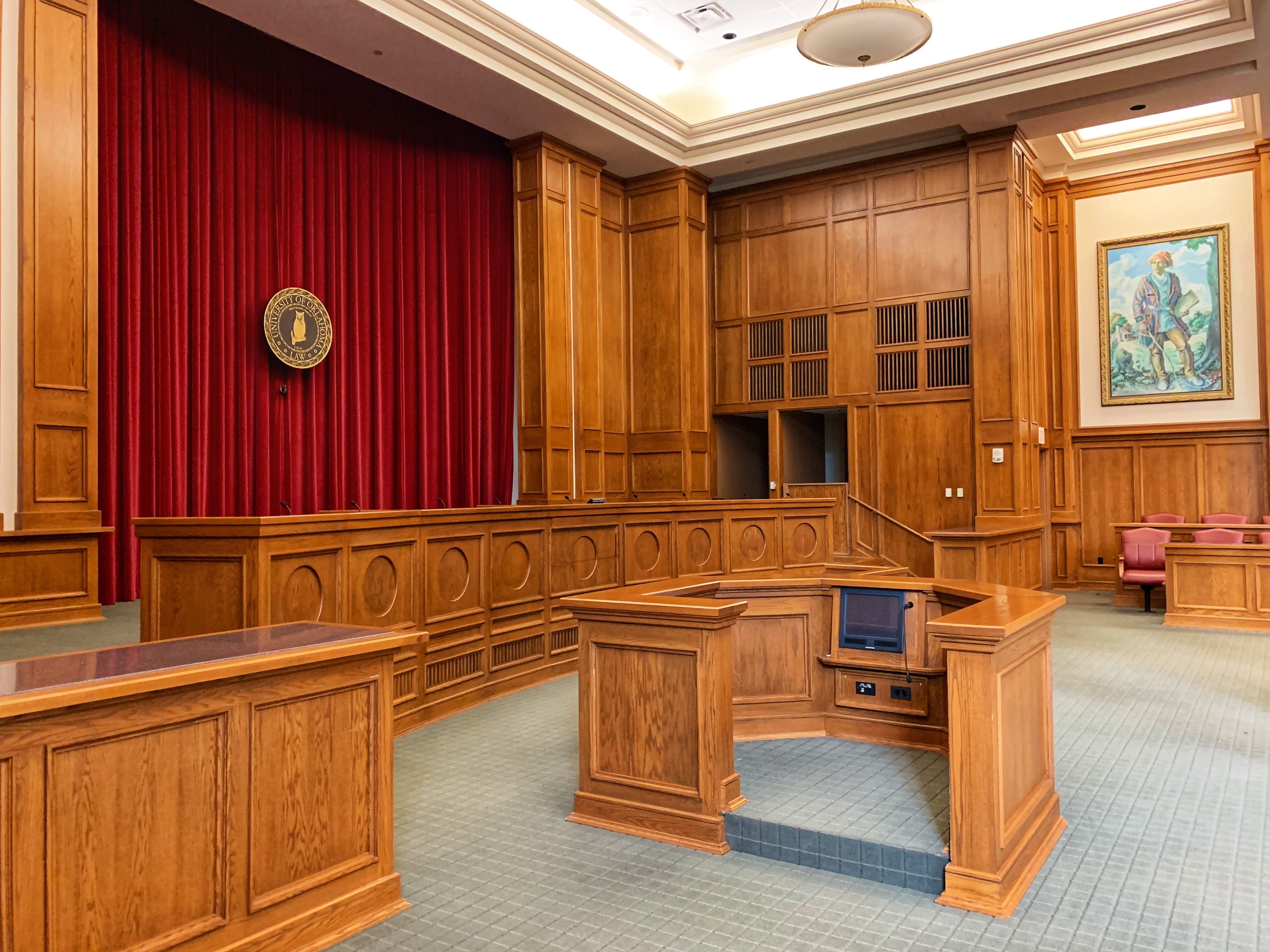Fortunately, dealing with a civil lawsuit doesn’t have to be difficult if you keep this information in mind.
Usually, when you watch a courtroom drama in the television, chances are you’re seeing a criminal case. This is entirely different from civil litigations, which are less dramatic. However, it doesn’t mean that dealing with a civil action is less important. Depending on the circumstances of your case, a civil lawsuit can become complicated, and, as such, you might feel discouraged by the many steps involved in the process.
Thus, if you’re facing a civil litigation, keep reading this article to help you better understand what’s exactly going on with your situation.
What as a Civil Litigation?
In simple terms, civil litigation is a legal proceeding by either a person or parties against the other in the civil courts of law. Legally speaking, this type of litigation occurs when two or more parties are involved in a disagreement involving sum of money and other civil actions, sans criminal accusations.
Generally, there are three basic types of civil lawsuits. These are the following:
- Private Civil Litigation – Generally, it involves matters of private property. It also refers to a civil suit against a third party that has the same rights as the parties to a private civil lawsuit, and is normally filed under a civil action.
- Public Lawsuit – In some way, it involves claims against the government, such as a case against the government over the alleged abuse of civil rights.
- Jury trial – It’s also an option for some civil lawsuits. If there’s no other way to resolve the dispute between two parties, a jury trial can often be the most efficient way to resolve it since it involves an impartial judge and jury to hear both parties’ arguments and render a verdict.
In addition, there are several types of disputes that can be considered as a civil litigation case. Below are some examples to look into:
- Antitrust Litigation
- Construction Liability Lawsuits
- Divorce Lawsuits
- Education Law Disputes
- Employment and Labor Disputes
- Environmental Law Disputes
- Landlord/Tenant Disputes
- Medical Malpractice Claims
- Personal Injury Claims
- Product Liability Lawsuits
- Real Estate Lawsuits
- Workers’ Compensation Claims
As you can see, all of these cases have one thing in common, and that’s they don’t involve any criminal charges. They usually involve matters pertaining to money, property, and other sources of civil obligation. On the other hand, in all civil cases, the plaintiffs typically seek remedy from the defendant/s, which is in the form of a court judgment providing settlement, damages, injunction, and other declaratory judgments.

What’s Your Lawyer’s Role in a Civil Case?
Just like other types of legal professionals, lawyers who specialize in handling civil litigation have an important role in the success of the process. From conducting an initial investigation to representing you in the civil court, the following are the skills professionals like Hopkins Roden Lawyers should have:
- Ability to research and analyze complicated legal materials
- Excellent interpersonal skills
- Excellent litigation skills
- Excellent negotiation skills
What Are the Steps Involved in a Civil Litigation Case?
The usual civil litigation case can be divided into several parts, which can include pleadings, discovery, trial, and appeal. But, if you want to better understand each step, below are a few things you need to know about them.
- Pleadings
This is the first step when dealing with a common civil litigation case. Under this step, each party involved will have to file some paperwork in the proper court to argue and explain their side of the story. These legal documents can include:
- The Complaint – This refers to a legal document filed by the plaintiff or the person bringing a civil action in court. This usually outlines what the defendant did that caused harm to the plaintiff and the legal basis to hold the defendant legally accountable for the damages caused.
- The Answer – This refers to a legal document filed by the defendant to answer the complaint filed by the plaintiff. This describes the defendant’s version of the events that lead to the dispute, summarizing any inaccuracies that they find in the complaint. However, it’s important to note that the defendant will have a limited amount of time to file an answer.
- Discovery
The discovery stage in a civil litigation case usually lasts for four to six weeks. During this stage, the case isn’t yet heard and is referred to as a ‘petitioner-respondent’ case. Discovery is about gathering information about what the plaintiff or defendant has that’s relevant to the case. This could include requesting financial documents, requesting witnesses, interviewing plaintiffs and defendants to get relevant facts, conducting a deposition and cross examination of the parties involved in the case, and even going to court and arguing the case before the judge.
If there are any depositions taken, then, the plaintiff and the defendant need to be prepared for what will happen to them during the deposition. If they’re unprepared for these events, then, they may find themselves losing their case.
Discovery typically takes place after the parties have been formally assigned a lawyer to handle the case. The lawyer will need to prepare their client for these events so that they can make sure they don’t leave the case without knowing what will happen to them during the entire discovery process. There are several things that the lawyers in a civil lawsuit should consider before taking on this challenge. One of the most important things to consider is how long the parties will have to spend on the case.
- Trial
This is a critical point in the litigation, and it can mean the difference between winning or losing the civil case. It’s at this point that many lawyers will focus their attention on trying to find the best possible outcome for their client. The trial stage can be divided into two basic categories.
First, there’s what’s referred to as the ‘pre-trial.’ It’s a period of time in which you’ll have to meet with a judge and present your case before a jury. This is an important stage because the jury won’t be able to form their own opinion of your situation until they’ve actually heard all of your evidence and arguments. In addition, your case can be presented to the jury only if your attorney can convince the jury to vote in favor of your claim.
The second category of the trial stage is known as the ‘proceeding.’ At this specific point, the jury is presented with both the evidence and arguments that have been made by your lawyer during the trial. While this is a critical stage, the majority of cases don’t end in a full verdict. Most of the time, a settlement is reached by both parties who are satisfied with the outcome of the litigation. Your case might not come to this point, but it’s essential for any lawyer to know when they’ll need to settle out of court.
- Appeal
After trial, a party who loses in the trial may elevate the case to the higher court to file an appeal. For instance, if you’re dissatisfied, you may ask the higher court to review and evaluate the trial court proceeding. During this stage, each party can present their arguments, along with the records of evidence from the trial court.
Typically, an appellate court will only hear and make a decision out of your appeal based on legal errors, which means that they’ll not entertain any factual evidence or the jury’s findings of facts. Once the appellate court studies your appeal, they’ll issue their decision in the form of opinion. If they find no error in the trial court proceeding, they’ll affirm the verdict. But, if they find an error, they’ll reverse the verdict or, in some cases, order the trial court to conduct another trial. Due to the nature of an appeal case, the litigation can take a long time, such as a year or more.
Understanding the Statute of Limitations in Civil Cases
In several types of civil litigation cases, especially those that involve injuries and matters of negligence, the state will require a statute of limitations in place. This refers to the time limit in which cases should be filed to avoid waiving your right to hold the at-fault party/parties accountable.
For example, in a personal injury lawsuit, the statute of limitations provides that the plaintiff’s claim has to be filed within a year of the accident itself. If you’re the injured person and you waited months or even years to file a claim in civil court, then, you may not be able to do so. Because of this, it’s important to find a good attorney who can give you legal advices on whether or not to go forward with your case after the time limit has expired.
Conclusion
Indeed, there are so many different types of civil litigation cases. However, not all people know exactly how these litigations work. Fortunately, dealing with a civil lawsuit doesn’t have to be difficult if you keep the information mentioned above in mind. It doesn’t need to be too hard to handle once you familiarize and understand the steps and some court processes necessary for winning the case.


Join the conversation!